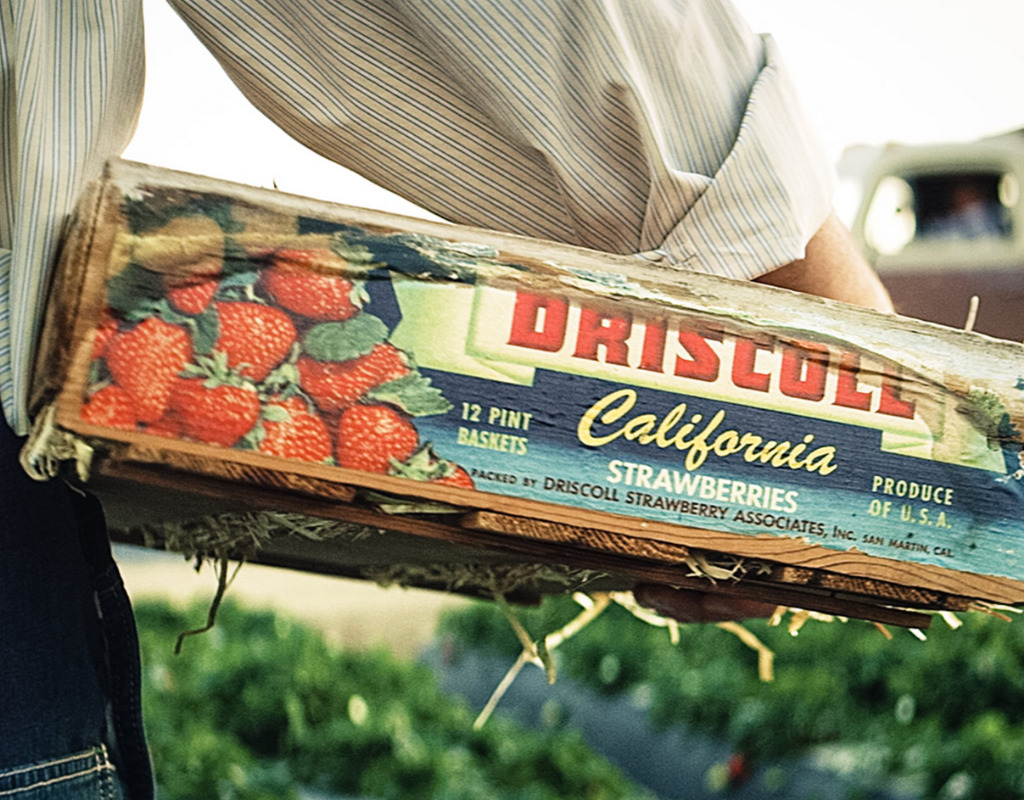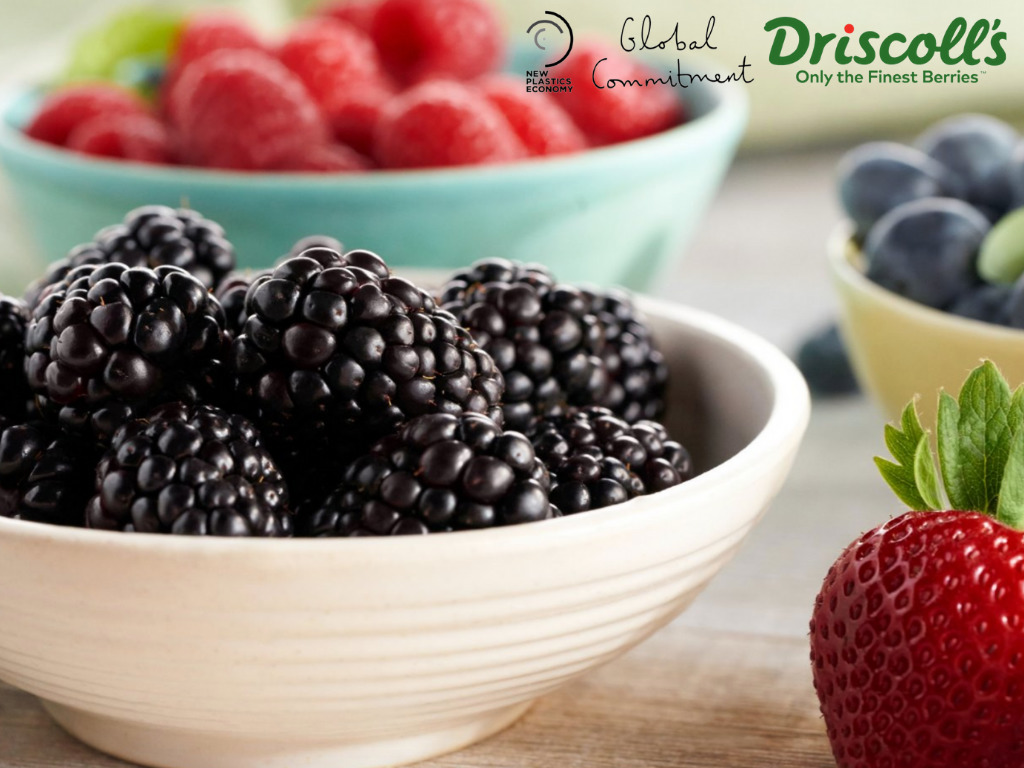Driscoll’s Joins The New Plastics Economy Global Commitment, Prioritises Sustainable Packaging Solutions For Its Fresh Berries
4 Mins Read
Driscoll’s, one of the world’s leading fresh berry produce companies, has joined The New Plastics Economy Global Commitment in an effort to make sustainable packaging solutions for its fresh berries a priority and with the aim to decrease their carbon footprint on the environment.
The California-based produce company recently signed The New Plastics Economy Global Commitment, an initiative led by the Ellen MacArthur Foundation in partnership with the U.N. environment program that aims to bring companies together to develop a circular economy for plastic that ensures a reduction in the use of plastic across the world.
With over 500 signatories joining this movement, Driscoll’s becomes the latest and first U.S.-based produce firm to do so.
Once the company is a member of this commitment, there are a set of targets that need to be defined that will help the firm meet its goal. For Driscoll’s, this will see the company aim to reduce the impact of its plastic packaging on the planet by 2025 by engaging in steps including eliminating unnecessary packaging; analyzing inbound and outbound plastic and shifting to paper packaging in its European markets; ditching single-use plastic and moving to reusable versions; making 100% of its packaging recyclable, or compostable; stopping the company’s two-piece packaging model and replacing it with a paper-pack with a heat seal; and including How2Recycle label on all its clamshells, a one-piece plastic container used in packaging.
Back in 2019, Driscoll’s joined the Sustainable Packaging Coalition and as a part of that embraced having How2Recycle labels on clamshells providing consumers an understanding of the material the item is made up of and how to dispose of the material in the right way, thus ensuring that plastic is recycled and doesn’t end up in landfills.
In a press release seen by Green Queen, Driscoll’s chairman and CEO, J. Miles Reiter said that good-quality berries need better packaging. “We have the opportunity to collaborate with many of the world’s leading brands throughout the journey to sustainable packaging in order to achieve scalable and economically viable solutions. Signing the Global Commitment elevates our existing work by holding us to a higher standard, and serves as a commitment to transparency as well as annual reporting to accelerate the transition to a circular economy for plastic.”

Better berries deserve better packaging. We have the opportunity to collaborate with many of the world’s leading brands throughout the journey to sustainable packaging in order to achieve scalable and economically viable solutions
J. Miles Reiter, chairman and CEO, Driscoll’s
At the moment, the company’s clamshells have more than 50% recycled Polyethylene Terephthalate (rPET) that is derived from post consumer plastic bottle waste and going forward, the firm will increase the amount of rPET to further encourage a closed-loop system.
The lead of the New Plastics Economy initiative at the Ellen MacArthur Foundation Sander Defruyt said of the announcement: “The New Plastics Economy Global Commitment unites businesses, governments and others behind a clear vision of a circular economy for plastic. We are pleased Driscoll’s is joining us, by setting concrete 2025 targets,” says Sander Defruyt, Lead of the New Plastics Economy initiative at the Ellen MacArthur Foundation. “Our vision is for a world where plastic never becomes waste or pollution. It will be a challenging journey, but by coming together we can eliminate the plastics we don’t need and innovate, so the plastics we do need can be safely and easily circulated – keeping them in the economy and out of the environment.”
Signing the Global Commitment elevates our existing work by holding us to a higher standard, and serves as a commitment to transparency as well as annual reporting to accelerate the transition to a circular economy for plastic
J. Miles Reiter, chairman and CEO, Driscoll’s
At the beginning of last year, the company, along with other leaders in the fresh berry sector, decided to meet 100% recycle-ready packaging by 2025.
By March 2021, Driscoll’s has managed to gain 10% recycled content from post-consumer clamshells as well as limit its packaging footprint by 366,000 kilograms of PET.
The New Plastics Economy Global Commitment is supported by a range of actors, including its lead philanthropic partner, Wendy Schmidt of the Schmidt Family Foundation; philanthropic partner the Oak Foundation and others including Amcor, Borealis, The Coca-Cola Company, Danone, L’Oréal, MARS, Nestlé, PepsiCo, Unilever, Veolia and Walmart.
Several companies are increasingly testing sustainable packaging solutions, in an effort to make them mainstream and reduce plastic usage, for instance, recently, Just Eat, the British online food ordering and delivery service extended its trial of Notpla’s compostable seaweed food boxes across Just Eat’s 11 restaurant partners, including Freddy’s Chicken & Pizza in Liverpool, and Mario Pizza in Manchester.
Other companies include Foodpanda Hong Kong who joined forces with Baguio iRecycle offering a free door-to-door recycling service, as well as collaborating with barePack, to switch to reusable food packaging.
Lead image courtesy of Driscoll’s.



